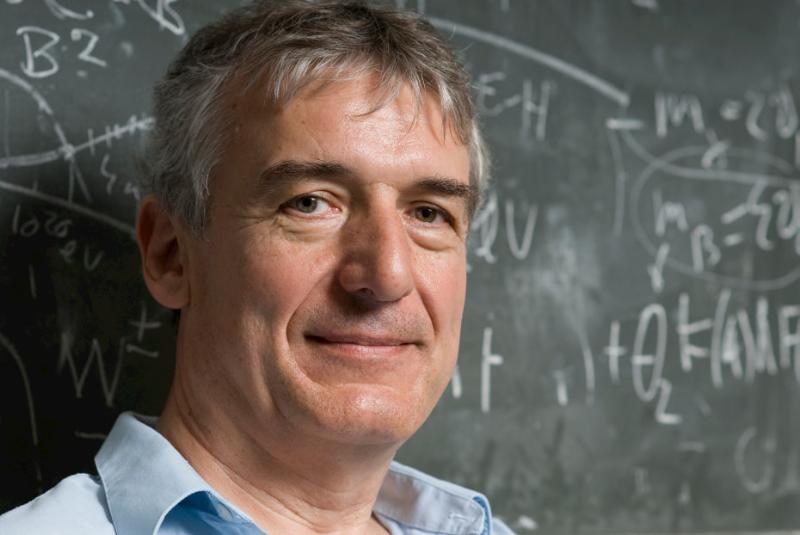UF professor wins Sakurai prize for theoretical physics

A University of Florida physics professor is the recipient of the 2020 J.J. Sakurai Prize for Theoretical Physics from the American Physical Society.
Pierre Sikivie is being honored for “his seminal work recognizing the potential visibility of the invisible axion, devising novel methods to detect it, and for theoretical investigations of its cosmological implications,” according to the American Physical Society. The annual award is one of the most prestigious in the field and recognizes outstanding achievement in particle theory.
The axion is a particle theorized to exist because it solves a problem in the Standard Model of particle physics, the theory that describes the electromagnetic, weak and strong interactions among elementary particles. In addition to solving a problem in the Standard Model theory, the axion could be a component of dark matter.
The axion has yet to be detected, and for much of his career, Sikivie has theorized about ways it could be spotted. Some experiments in particle physics utilize his research showing dark matter axions can be detected on earth when they are converted to microwave photons in a cavity that has a strong magnetic field in it. Other experiments look for axions emitted from the sun and converted into x-rays in a magnetic field on earth.
Experiments based on his work can be found in labs across the world, including the Axion Dark Matter Experiment at the University of Washington’s Center for Experimental Nuclear Physics and Astrophysics (CENPA), and at the European Organization for Nuclear Research (CERN) in Switzerland.
“He’s a great partner, always willing to explain details and sit down to work problems out on a practical level,” said David Tanner, also a professor of physics at UF who collaborates with Sikivie on designing and constructing axion detectors. “He’s just a fountain of ideas, always thinking about new ways to evolve the axion and experiments.”
If it is found, scientists could use the axion to learn more about the history of the galaxy.
Sikivie received his bachelor of science from the University of Liege, Belgium, and his Ph.D. in physics from Yale University. He held postdoctoral research positions at the University of Maryland, Stanford Linear Accelerator Laboratory and CERN before joining the faculty at UF in 1981.
